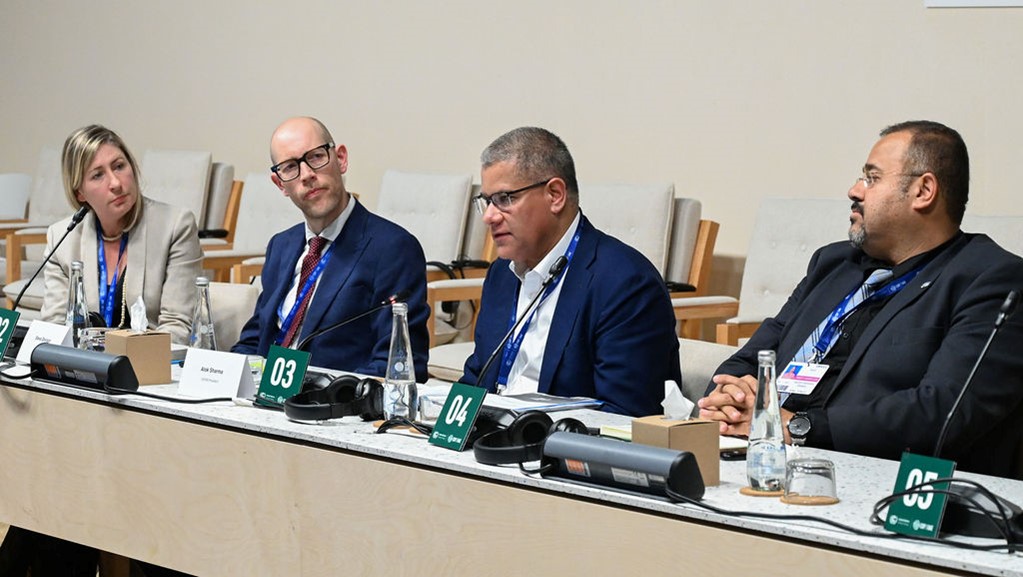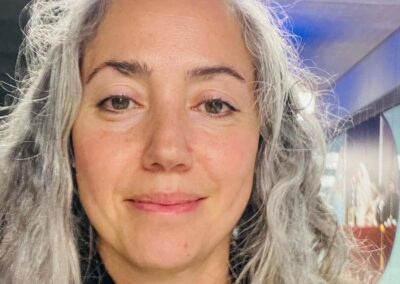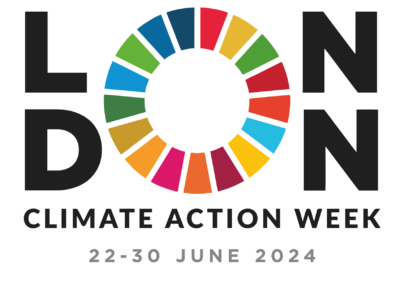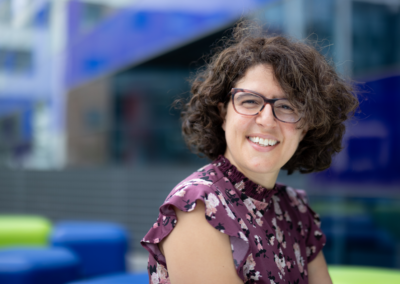Ruth Jihyung Joo is a Knowledge Exchange Fellow at the University of Leeds. In this blog, she reflects on her experience attending a roundtable event for higher education networks at COP28.
COP28 marks a step forward in climate finance to address the financial imbalance between poor countries, which suffer from climate change, and wealthy countries that may have contributed to the problem. However, the imbalance is not limited to financial resources alone. Disparities exist in knowledge about climate change, including its causes, effects, and remedies. As Francis Bacon famously stated, “knowledge is power,” and imbalances in global knowledge and capacities can result in power imbalances in climate negotiations. This underscores the need for international collaboration in knowledge sharing, with universities and the higher education sector playing a crucial role in alleviating this imbalance.
There are different layers of activities in which universities participate in the UNFCCC process. Academics play a pivotal role in advising parties, ensuring evidence-based decision-making. At the institutional level, universities strive to contribute to climate action through their research, education, innovation, and outreach. Additionally, coalitions of universities and higher education institutions collaborate to amplify their influence at the network level – UUCN is an example of this. Established in 2019 on the road to COP26 to support the COP presidency, it continues to grow to promote a zero-carbon and resilient future. Additionally, the COP28 presidency established the UAE University Climate Network to engage youth and academia in the lead-up to COP28. Higher education networks are changing and growing worldwide to address climate change.
What would happen if these networks connect and work together to accelerate climate action? To answer this question, the fourth Network of Higher Education Networks (NoN) Roundtable was held on 8 December in the COP28 Blue Zone. The roundtable aimed to build upon conversations among representatives of the sector in previous COPs regarding how the sector can collaborate across borders at the network level. Representatives of over 20 networks encompassing the global North and South, UN organizations, and other members of the higher education community gathered around the table.

COP26 President Alok Sharma speaks during the NoN roundtable
In the opening remarks, Rt Hon Alok Sharma MP, COP26 President, stressed the important role of universities in bridging diverse sectors in climate change and emphasised that the message lacks sufficient volume to effectively reach climate negotiations. The co-conveners of the NoN, Kristy Faccer of the University of Toronto and Stephen Davison of the University of Cambridge, presented the mapping results that identified 38 global higher education networks actively engaged in climate change-related activities. Subsequently, a vision “to drive implementation of the UN climate goals in pursuit of a society-wide transition to a resilient and zero-carbon world” was shared. The majority of network representatives in the room agreed on the vision and needs, expressing high interest in moving forward with future contributions as a sector.
In the open discussion, opportunities for knowledge sharing and capacity building for the global South were highlighted. The UN High-level Climate Champion, Dr. Mahmoud Mohieldin, remarked that there is a great need for assistance from the higher education sector in capacity building, tracking, and verifying climate commitments and progress. Other representatives further reiterated the need for collaboration in capacity building and sustaining that capacity so that universities can effectively deliver and amplify climate actions locally and regionally.
Collaborative opportunities also include partnerships with non-party actors in delivering climate actions. The UNFCCC climate champion team is appointed to connect the work of governments with non-state actors to elevate ambition and mobilise climate action to reach Paris goals. The Climate Champion Team sees possibilities in working with the higher education sector, especially in the delivery of decarbonisation and achieving resilience.
Despite these promising opportunities to collaborate, the challenge lies in the wide divergence of size, activities, maturity, and character of different networks. It is also important that the efforts address the genuine needs from the global South, without creating time and resource burdens for them. Concluding the roundtable discussion, the question remains about how to proceed from here. Vision and needs have been shared, and efforts must be made to turn them into reality in the coming years. Learning more about different networks worldwide will be an ongoing task, and conversations will continue to explore what each can bring to future convenings, including the next COP.
Participating as an observer and a rapporteur of the roundtable, I see hope as the NoN embarks on the journey of global collaboration. During the one-and-a-half-hour gathering and discussion, I could sense the keen interest among higher education network representatives to work together. Despite challenges ahead, “what connects us is passion,” as co-convener Kristy Faccer commented. Cooperation across borders and between non-state actors is required to close the gaps in reaching the Paris Agreement ambition.
Ruth Jihyung Joo was awarded a Networking Scholarship to attend COP28, enabled by a partnership between the UK Universities Climate Network, the UK Embassy Science and Innovation Network in UAE and the Research England funded Centre for Postdoctoral Research in Infrastructure, Cities and Energy (C-DICE).


